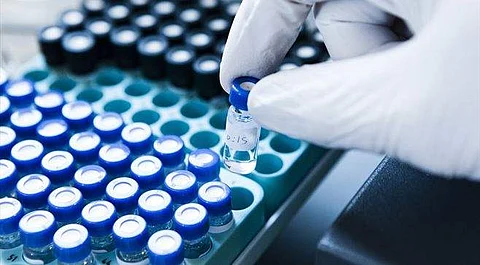

To treat people infected with the coronavirus (COVID-19), many, including US President Donald Trump, have supported the use of the anti-malarial drug hydroxychloroquine (HCQ). However, the antimalarial drug might not be effective in treating coronavirus (COVID-19), claims a Chinese study.
Hydroxychloroquine is used to prevent and treat acute attacks of malaria. It is also used to treat discoid or systemic lupus erythematosus and rheumatoid arthritis in patients whose symptoms have not improved with other treatments.
The anti-malarial drug has been identified by the US Food and Drug Administration (FDA) as a potential treatment for the Coronavirus.
For the findings, the researchers from china picked 150 hospitalised patients and conducted a randomised controlled trial at 16 government-designated COVID-19 treatment centres.
According to the study appeared in the pre-print repository medRxiv which is yet to be peer-reviewed, the Chinese research team showed that hydroxychloroquine did not help patients clear the virus better than standard care.
Another research, published earlier this month in the Canadian Medical Association Journal, stated that chloroquine, hydroxychloroquine and azithromycin are being used to treat and prevent COVID-19 despite weak evidence for effectiveness, and physicians and patients should be aware of the drugs' potentially serious adverse event.
The review provides an overview of potential harms associated with these drugs as well as their management based on the best available evidence.
Potential adverse effects include cardiac arrhythmias-- Improper beating of the heart, whether irregular, too fast or too slow, Hypoglycemia-It is a condition in which your blood sugar (glucose) level is lower than normal and overdose (chloroquine and hydroxychloroquine are highly toxic in overdose and can cause seizures, coma and cardiac arrest).
According to the recent data from Johns Hopkins University, COVID-19 has so far infected over 2 million people and led to the deaths of over 137,000 in the world.
